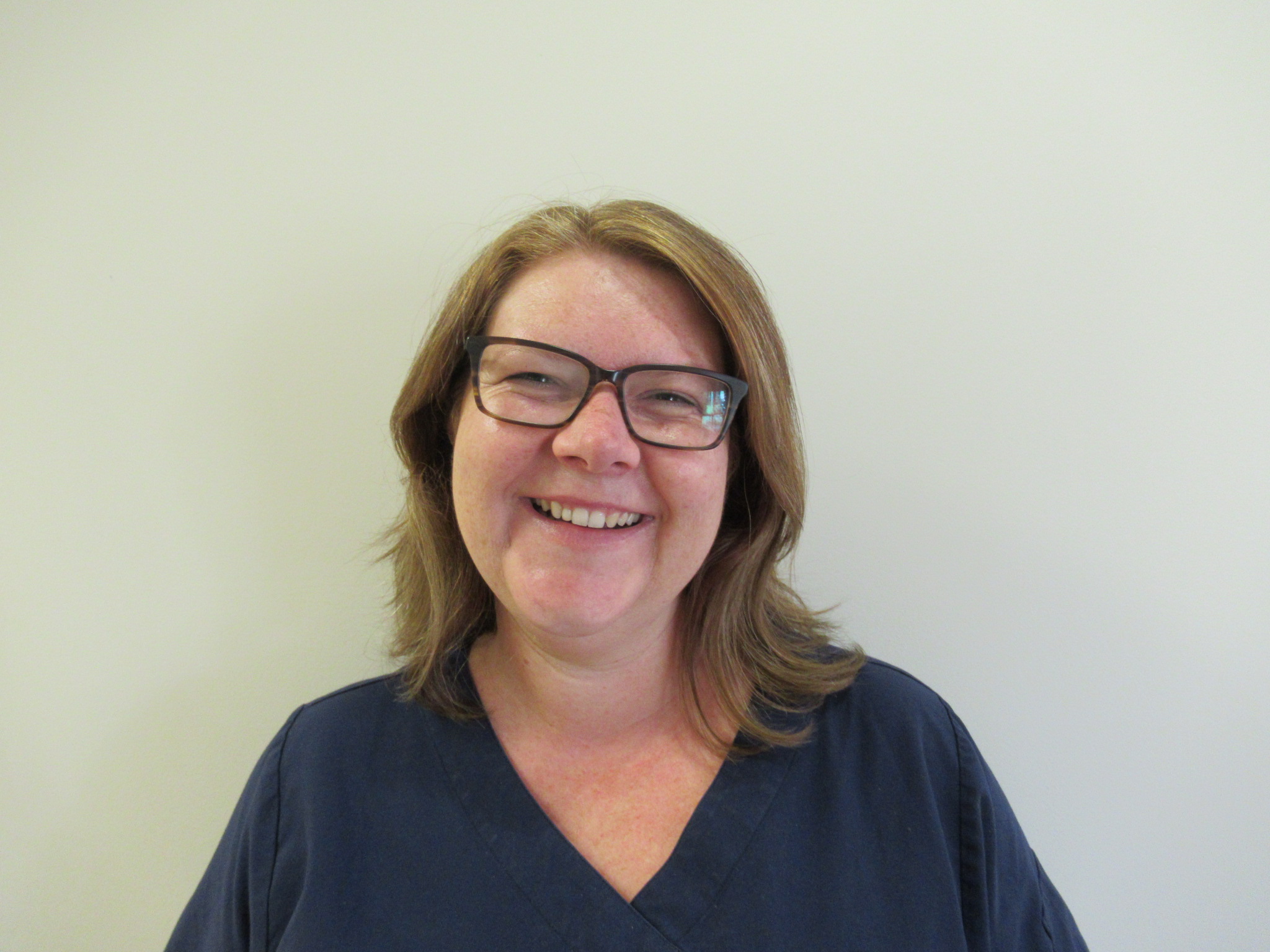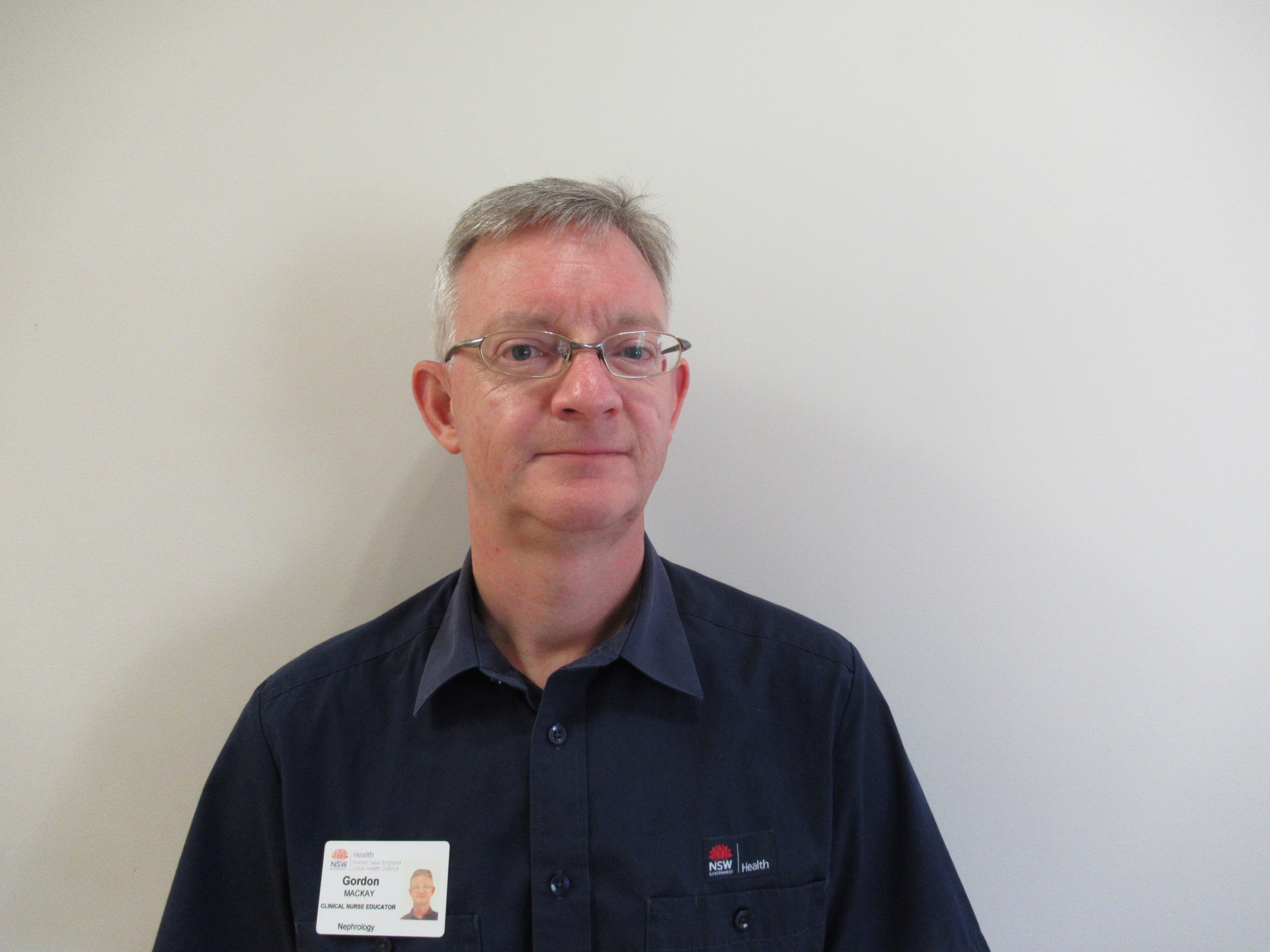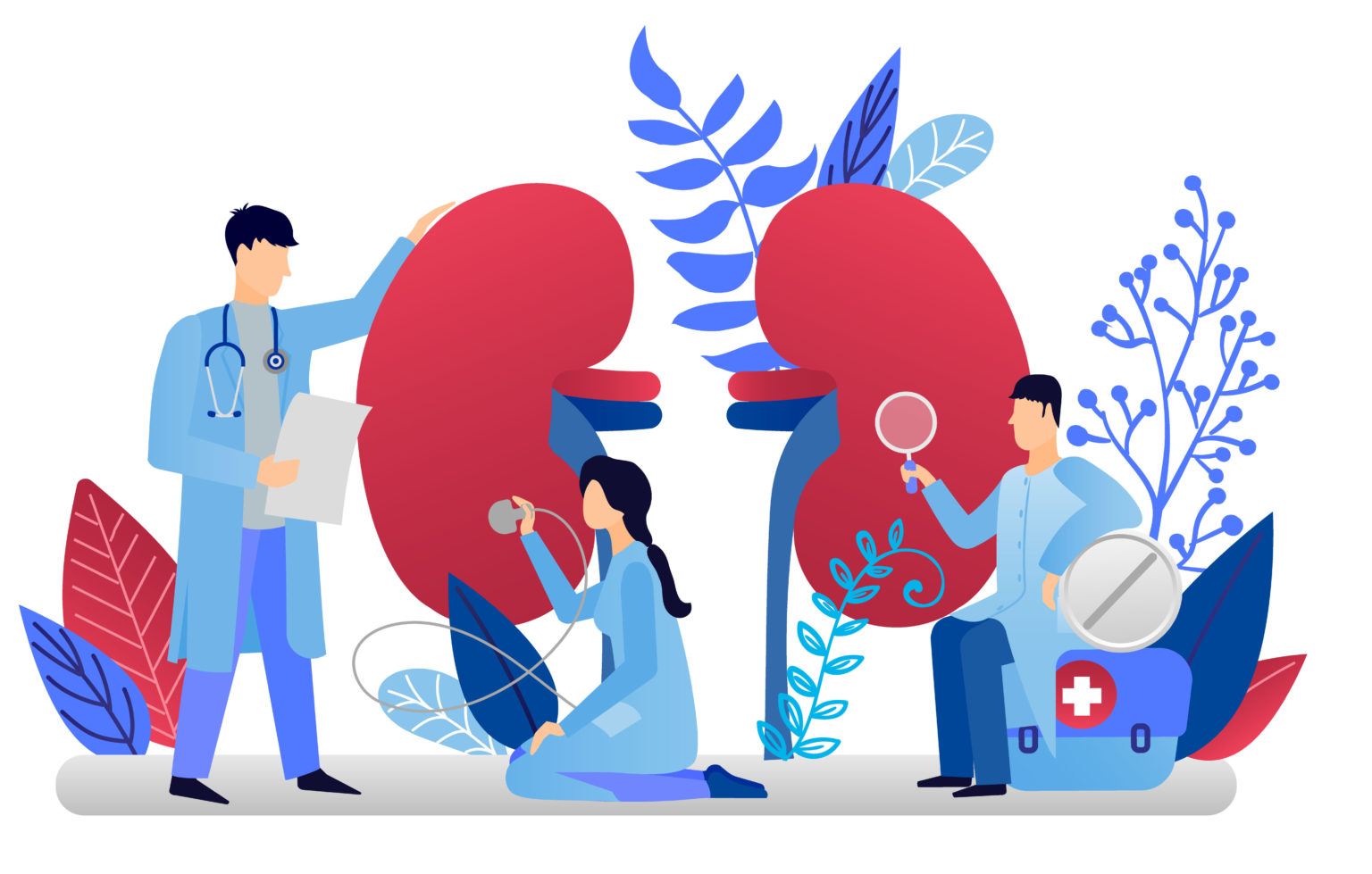Kidney Treatment Options Pathway
The Kidney Treatment Options Education Pathway is a plan of care designed to help you decide on treatment options for kidney disease. The pathway helps you meet the appropriate health care worker at the right time.
The Kidney 'Team' includes:
- Your kidney doctor (Nephrologist)
- Surgeons
- Nurses
- Pharmacist
- Social Worker
- Occupational Therapist and
- Dietitian
Your Kidney 'Team' are here to help you with making treatment decisions, provide information about treatment options, help you manage your medications and give advice on eating well with kidney failure.
Why have you been referred?
Your Nephrologist asked you to join our Kidney Treatment Options Pathway based on review of your kidney function. They are looking at the chance your kidney function will drop to a level where you need to think about medical treatment.
Early referral to the Kidney Treatment Options Pathway is shown to support people in making informed treatment choices.
Sometimes people are referred while they are feeling well which can feel confusing. We do this to allow enough time for you to attend education, speak to friends and family and to come to a decision about your future plans.
What happens now?
The kidney treatment options education pathway has lots of communication between you and your treating medical team.
The Kidney Treatment Options Coordinators are Registered Nurses in the Nephrology Unit of John Hunter Hospital. We work with you to inform you about treatment options. The Kidney Treatment Options Coordinators work between your Nephrologist and your health care team.
Your Kidney Treatment Options Coordinator will talk to you often to help you manage your kidney disease as best as you can.
A long period of time can pass between being referred for education and having to make any definite plans for treatment. The pathway is to ensure that you are kept informed about your options as time goes on.
It is important to recognise that your decisions can change over time and your health status can impact upon future events.
Click below for contact details and further information on education opportunities.
Kidney Treatment Options Coordinators
Gordon Mackay - CNS, RN
Wansey Dialysis Unit, 1D Dudley Road, Charlestown, 2290
Phone: 4904 8800

Ward K1, John Hunter Hospital, Lookout Road, New Lambton Heights, 2305
Phone: 4921 4584
Your Kidney Treatment Options Coordinator will talk with you to help you manage your kidney disease as best as you can. You begin our education pathway after being referred by your Nephrologist to one of the Coordinators.
The Coordinators will be your ‘case manager’ and are there to provide the following assistance:
- Provide education on treatment options.
- Ensure you are referred to members of the health care team when required.
- Act as a point of contact for you and assist with any questions you may have.
- Contact you on a regular basis to check how you are going.
- Arrange for screening for Hepatitis B and vaccination if needed.
We have close links with the Transplant Team at John Hunter Hospital and the Renal Supportive Care team. We can help guide appropriate contact with these teams.
Kidney Treatment Options Education
At these meetings we discuss your thoughts about your treatment decisions and answer your questions about what happens next.
Dietitian Assessment
When you are referred onto the pathway by your Nephrologist, the referral will include an appointment with a renal dietitian. This can be done through the public health system at John Hunter Hospital or via telehealth. Private clinics are also available through Hunter Kidney Clinic at Gateshead.
Kidney Treatment Options Seminar
The next step is the Kidney Treatment Options Education seminar. If you are already on dialysis it is important that you still attend this session.
The seminar is a great chance for you and your family/ friends to gain more information, ask questions and meet other people in a similar situation. The education seminar is run second monthly at a local Club, Club Charlestown.
We have speakers from the renal unit, the Renal Pharmacist, home training nurses, Dietitian and Social Worker. It is good chance to meet members of your renal team and others who are facing similar decisions about their treatment options.
Planning Clinics
After attending the seminar, you and your family/ friends will be invited back for a planning clinic at the Wansey Centre, Charlestown.
You meet a Kidney Treatment Options Coordinator to talk about your plans and make referrals to other members of the health care team if required. You will also speak with our Renal Social Worker.
The Planning Clinic allows time to discuss treatment options your Kidney Doctor may have talked with you about in clinic appointments.
Home Therapies Assessment Clinic
After discussing your treatment options, you can meet with members of our Home Training Team. This clinic will give you more time to speak about home dialysis to help your decisions about treatment.
Kidney Treatment Options Pathway across our District
The Nephrology Unit based in Newcastle has nine Nephrologists who can refer their patients to the Kidney Treatment Options pathway. There are about 250 people on the Renal Options Pathway with different stages of kidney function.
We cover a large geographical area. We have patients from the border of the Central Coast, up as far as Aberdeen and Scone in the Upper Hunter and north as far as Buladelah.
Other areas such as Tamworth, Armidale, Taree have Renal Options Coordinators working in their Renal Units and provide education pathways similar to our Renal Options Pathway in Newcastle. Contact details for the Renal Options Coordinators in these areas are below:
Tamworth and Armidale
Michelle Hobbs CNS, RN
Dialysis Services in Peel, Mehi and Tablelands Sectors
Tamworth Hospital Locked Bag 9783, Tamworth NEMSC, NSW 2348
Phone: (02) 6767 7043
Taree, Manning Renal Services
Hannah Morris Clinical Nurse Consultant
Manning Renal Services | Hunter New England Local Health District
Manning Rural Referral Hospital, Biripi Country, Taree NSW 2430
Phone: (02) 6515 1902
What are my treatment options?
The referral from your kidney specialist to the Kidney Treatment Options Pathway is a starting point for you to think about the different treatment options. The main question is which treatment option would work best for you and your family. Being actively involved in decisions about your treatment is welcomed by your kidney team.
The three treatment options for kidney failure are
- Kidney Dialysis (haemodialysis and peritoneal dialysis)
- Kidney Transplantation
- Supportive Care (without dialysis)
Your kidney team, along with your GP, will give you the information and support you need to help you make the best decision for your situation. It is important to remember that your decisions can change over time and changes in your health can affect your future plans.
More information about the three treatment options, including video presentations is below.
Kidney Dialysis
Dialysis is a broad name used for a medical treatment for kidney failure. Dialysis removes waste products and extra fluid from the blood.
What are the different types of dialysis?
There are two different types of dialysis: peritoneal dialysis (also called PD and is done at home), and haemodialysis (also called HD and can be done at home or in the renal unit).
Dialysis has a number of options, which include home dialysis (either peritoneal dialysis or home haemodialysis) and centre-based haemodialysis (in a satellite dialysis unit or a hospital dialysis unit).
Unless your medical condition affects your choice of options, there are usually two types of dialysis we can offer:
Haemodialysis
This means a type of treatment where some of your blood is pumped through special tubing to a haemodialysis machine. The machine acts like an artificial kidney, filtering waste products and extra fluid from the blood before returning it back to your body. During haemodialysis your blood goes through a special filter called a 'dilayzer' before being returned into your body.
Peritoneal Dialysis
This dialysis treatment for kidney failure is where dialysis fluid is moved in and out of the peritoneal cavity in your belly. This is usually done 3 or 4 times during the day to clean the blood. It can also be done at night using a special machine called a Cycler. The membrane in peritoneal dialysis is the natural lining of the abdomen, so dialysis takes place inside the body. PD is generally done at home, by either the patient or a carer.
Is one better than the other?
PD and HD work in similar ways: the blood is filtered through a very thin membrane known as the dialysis membrane. The excess wastes and fluid pass into a special liquid called dialysis fluid or dialysate so that they can easily be removed from the body. They both are effective in removing the excess waste and fluid from your blood.
Your decision about which dialysis treatment to choose is sometimes affected by your other health conditions. Unless your medical condition means one is not suitable, they are both good long term treatments for kidney failure.
Supportive Care
Introduction
Some people with kidney failure will decide not to have dialysis treatment. There may be many reasons for this. Some may feel that the treatment will be hard to manage and impact too much on the remainder of their life, or they may feel that the journey to the dialysis unit three times a week is too much for them.
Having heart disease or other chronic conditions may also make the kidney treatments such as dialysis particularly difficult. For those who are easily confused, for example, people who have dementia, dialysis may seem frightening or upsetting.
Whilst old age itself is not a barrier to commencing dialysis, older people are more likely to have other diseases such as heart or respiratory diseases which may impact on their ability to do well on dialysis. Also, because of these additional health problems they may not be suitable for a transplant.
Some people having reached the stage where they decide not to have dialysis to treat their renal disease may live for one to two years without dialysis, but this varies and is often difficult to predict. People making the decision not to have dialysis will ultimately die, but often of other causes and many die with some kidney function remaining.
Treatment once someone decides not to have dialysis
If you decide not to have dialysis you will still receive support and medical treatment from your kidney team. Your GP will also be aware of the decision.
Everyone involved in your care will support your decision, as long as they are happy that it is a fully informed choice. Your kidney team will counsel and support you and your carers through these difficult decisions.
Kidney Transplantation
If you have end-stage renal disease (ESRD), kidney transplantation may be the treatment option that allows you to live much as you lived before your kidneys failed. However it is important to remember that it is not a cure, as it can only provide 50% of normal kidney function and requires you to take medicines for the rest of your life.
How transplants work
Kidney transplantation is a procedure that places one healthy kidney from another person into your body to take over the work of your two failed kidneys. It is inserted into your lower abdomen and connected to an artery and vein in your pelvis. Your blood flows through the new kidney, which makes urine and removes harmful waste products, just like your own kidneys did when they were healthy. Your own kidneys are usually left in place.
The transplant process
Transplant workup. First you'll need an assessment to determine whether your body will accept an available kidney. This may require several visits over 4-6 months. You must be healthy enough for surgery.
If a family member or friend wants to donate a kidney, they'll need to be evaluated separately for compatibility, general health and counselling. Matching the kidney to your immune system is less important for living transplants.
Transplant waiting list.
If you don't have a living donor, you will be registered with the national waiting list to receive a kidney from a deceased donor. The average wait in Australia is three years, but it varies considerably.
Transplant operation.
If you have a living donor, the operation is scheduled in advance at a time that suits you both.
If you're on a waiting list for a deceased donor kidney, as soon as a kidney becomes available you must go to the hospital quickly. There you will have some tests tom ensure the transplant can go ahead. The operation usually takes 3-4 hours. Often the new kidney will start making urine as soon as your blood starts flowing through it, but you may need dialysis if this is delayed.
To prevent your immune system from seeing your new kidney as foreign and rejecting it, you need to take drugs that suppress your immune response. Be sure that you understand the instructions for taking your medicines before you leave the hospital.
You will have regular appointments with the transplant team once you are discharged from hospital. It is very important to attend.
Links to External Websites
Links to third-party sites
The Information contained in this site includes information derived from various third parties which is neither endorsed nor supported by the State of New South Wales and does not necessarily reflect any policies, procedures, standard or guidelines of the State of New South Wales.
The State of New South Wales takes no responsibility for the accuracy, currency, reliability and correctness of any information included in the Information provided by third parties nor for the accuracy, currency, reliability and correctness of links or references to information sources (including internet sites) outside of the NSW Ministry of Health.
Links to other internet sites are not under the control of the State of New South Wales and are provided for information only. Care has been taken in providing these links as suitable reference resources. However, due to the changing nature of the Internet content, it is the responsibility of the users to make their own investigations, decisions, enquiries about the information retrieved from other Internet Sites. Providing these links does not imply any endorsement, non-endorsement, support or commercial gain by the State of New South Wales.
Disclaimer
DISCLAIMER: Reference to Health related websites are for general information purposes only. Reference to a website does not indicate support or endorsement by HNELHD Health and HNELHD Health accepts no responsibility for the content of these links. Consumers and health professionals are reminded of the need to seek information specific to their needs by a qualified health professional.
The material is for use as a guide only and is not designed to be, and is not a substitute for, formal clinical guidelines, educational texts, or specific medical or related advice or opinion, and should not be taken as such. We are not responsible to you, or anyone else, for any loss suffered in connection with the use of this website or the material on it.





